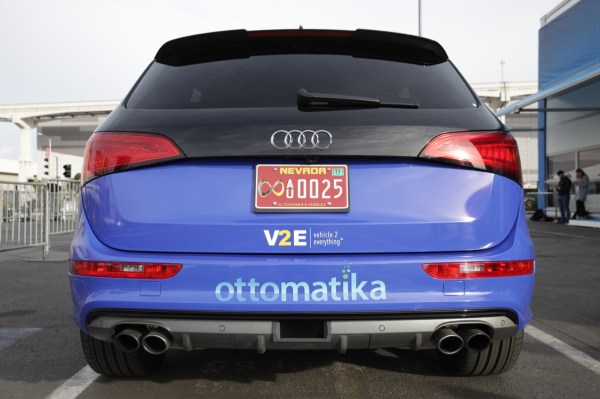Dance cards are filling up for the coming autonomous driving revolution: The newest partners are Delphi and Transdev, who are joining forces to create an automated, on-demand mobility systems, with a service offering set to make its debut via pilot projects in France, and then to eventually expand eventually to global reach.
Delphi will be bringing its automated driving platform to the mix, which it’s creating in partnership with Mobileye; meanwhile, Transdev is a recognized leader in mobility network operation, and already works with public transit authorities around the word, including trams, light rail, buses, ferries, and more recently, autonomous vehicles. Transdev boasts 83,000 employees, and operates 40,000 vehicles across 19 countries across all five continents – so even if it’s new to you (as it was to me), they’ve got positioning in the industry that few can claim to match.
This is one of the most ambitious of the currently announced autonomous mobility service projects, since both Delphi and Transdev are stating up front that they want to eventually have a global footprint with their offering. The companies are also going to be working on getting pilot projects operating very quickly.
Transdev is already started work on an autonomous on-demand service pilot in Normandy (depicted in the video below), and this will give it and Delphi the chance to test all aspects of the planned platform, from dispatch to sensor fusion and intelligence. This will be open to members of the public from project outset, and will provide public transport where there isn’t currently an option available today.
Then, in Paris-Saclay, both companies will work together to launch a “first mile, last mile” service operating between a railway station and a nearby campus. The goal with that pilot is to launch two cars and one shuttle prior to the end of this year, and then to grow the fleet beyond that. The goal is to not have a driver present in the vehicle at all as soon as possible, explained Yann Leriche, Chief Performance Officer at Transdev on a call announcing the news, though initially there will be a technical driver monitoring on board.
“We believe that autonomy will bring a lot of social benefits,” Leriche said. “Our mission is to leverage those benefits to provide attractive shared transportation options to our clients. The asset can be shared, for example on-demand cars, or the ride can be shared, for example, buses.”
For Delphi, this partnership will provide access to testing on a wide range of vehicle types across a wide variety of service settings, and it gives them someone to work with who already has a deep functional understanding of current urban transit and the challenges therein. It’s a perspective that not even more modern ride hailing service operators like Uber or Lyft necessarily have, especially when it comes to partnerships with urban transit authorities.
[gallery ids="1500591,1500592,1500593"]
“They have that clear pathway, they’re operating today, they understand this and we couldn’t be more excited to be adding them as a partner,” Glen De Vos, Delphi’s Chief Technology Officer, said on the call. “We really have line of sight into how the technology can be deployed, and deployed in a way that really makes sense in terms of safety and in terms of commercial operations.”
Both companies will say they’ll contribute to the co-development of future autonomous vehicles (along with vehicle manufacturing partners), as well as infrastructure to make operating a commercial service sustainable and scalable. The end goal is to get the service to market for public consumption by 2019. By 2018, the test projects should be operating without a safety driver on board, and will instead be managed remotely by a central control operator, according to Leriche. This would be the first autonomous service without drivers on board on open roads.
Delphi, a long-time auto industry supplier, recently announced that it would split off its powertrain company into its own unit in order to focus more fully on EV tech and autonomous vehicles. Transdev provides “deep understanding of the consumer experience,” however, according to De Vos, since it interfaces with the public in its existing business very frequently.
Already, Leriche said that Transdev is testing in autonomy, but it’s looking to Delphi to help it bring those services to the open road. Delphi will help in this manner because of its proven autonomous driving platform.
